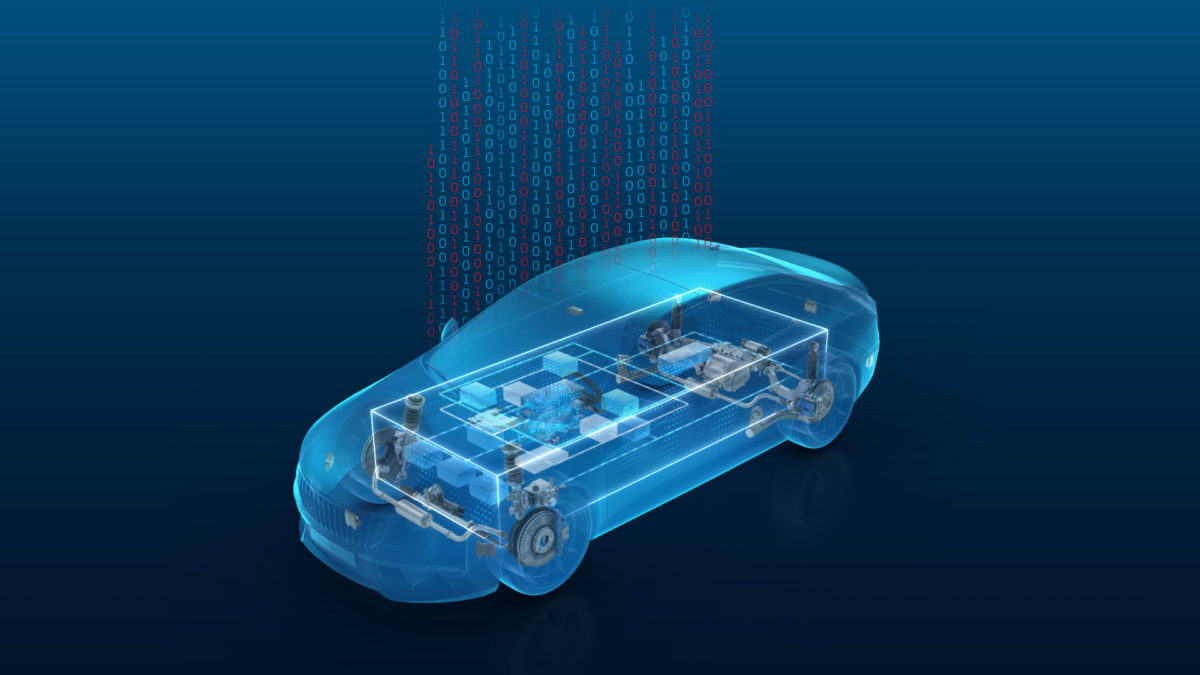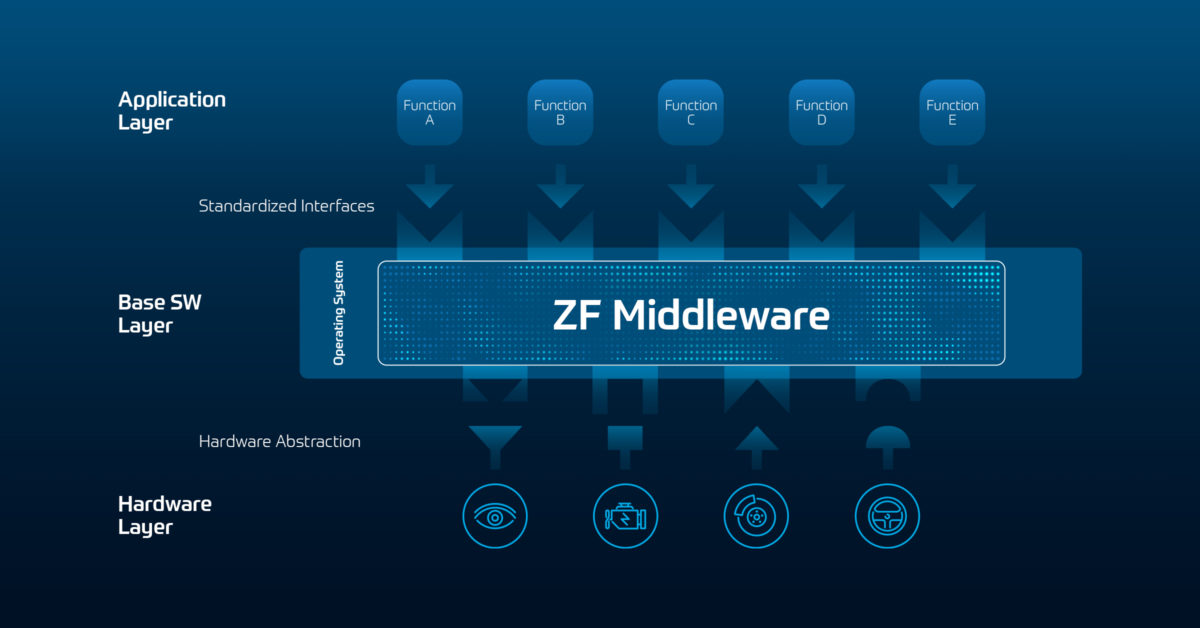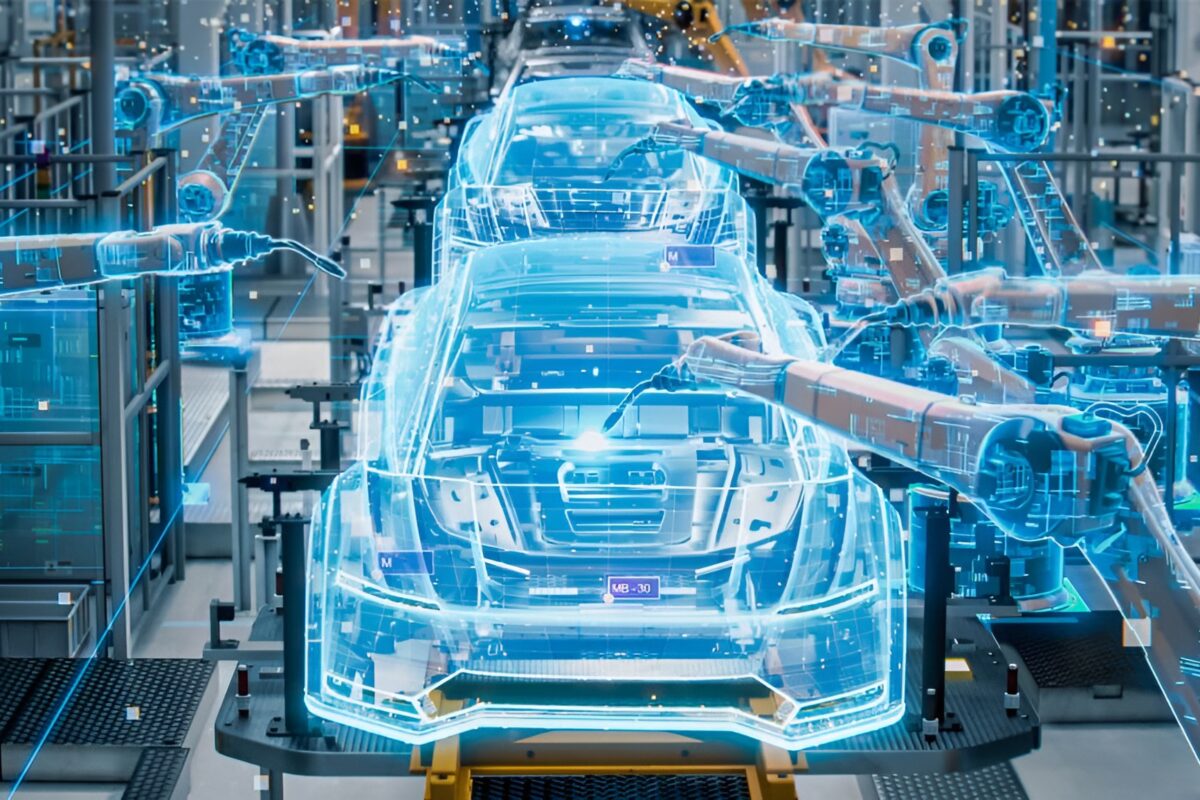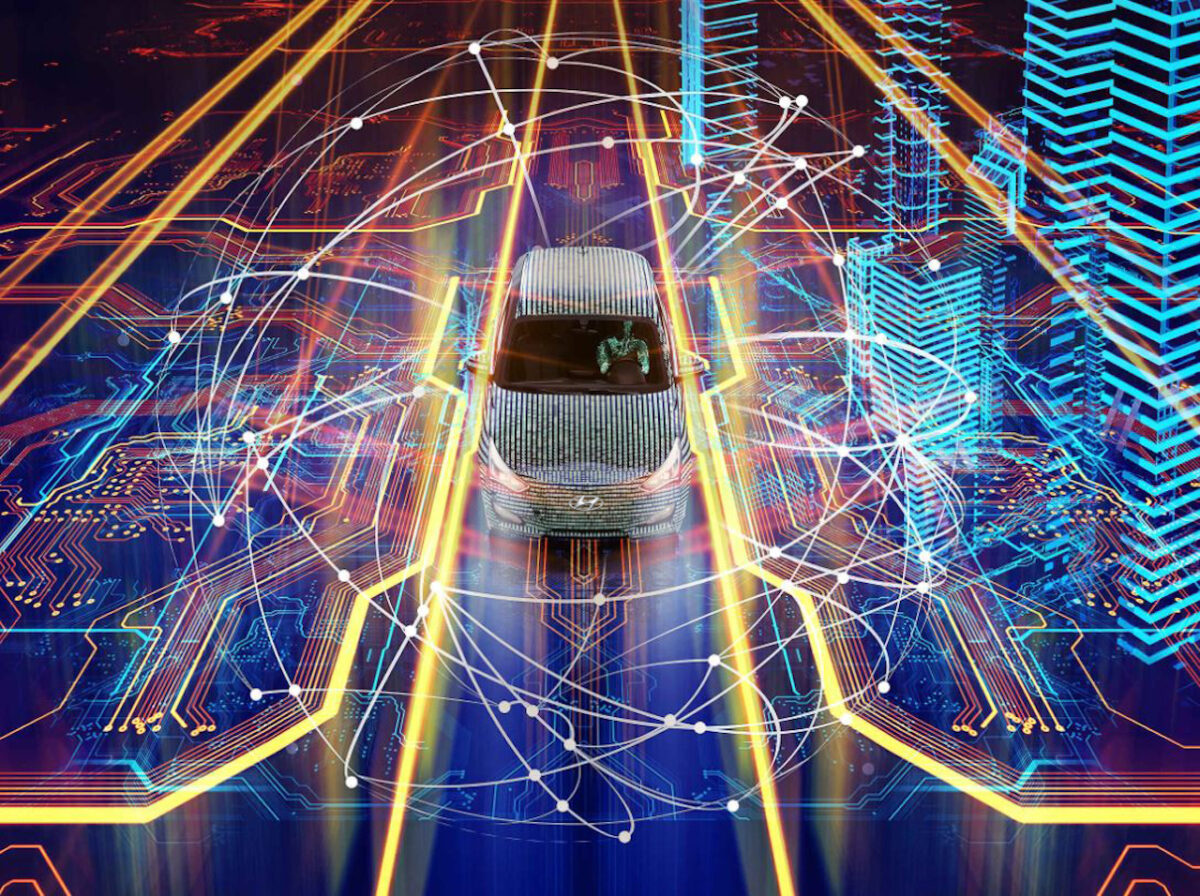German supply giant ZF is jockeying for a key position in the increasingly lucrative automotive software segment. Software is already at the heart of connecting vehicles and automating driving, and will continue to shape the future of mobility. It’s not surprising that ZF wants in on the action and plans to open a new Global Software Centre next year.
A key focus area at the moment is its new middleware, an open software platform that serves as a ‘mediator’ between a vehicle computer’s operating system and software applications. The technology promises to accelerate development processes and reduce complexity. ZF middleware will become available in series vehicles from 2024. Automotive World caught up with ZF’s Dirk Walliser, Senior Vice President, Research & Development, Innovation & Technology, to hear more about the company’s contribution to the software-defined vehicle.
How does this latest investment in software impact ZF’s role in the wider automotive ecosystem?
ZF’s DNA remains that of a scaling partner for the automotive industry. Our biggest value is that we provide products and services that scale across different brands and automakers. For a software provider it’s the same thing. We are simply adding another product stream, which is pure software. This is the first big software package that we are offering independently. Our system competence is comprehensive and well developed. A tech company may know more about how to do software but our core expertise is around performing functions safely and reliably.
What are some of the biggest pain points in the development of software-defined vehicles?
If automakers want to be competitive with vehicles that launch in 2030, they have to start work on them now. All OEMs are rethinking their roadmaps and their embedded architecture. The biggest pain point here is complexity. Automakers are moving from a strategy where they have a function on the ECU to a zone-based architecture that creates more flexibility. If we don’t do that, we will not be able to manage the complexity. Without middleware the complexity will kill us.

How does this help with overall development times?
The new architecture addresses multi-use applications and much faster development cycles, so we can start fast and learn fast. Up to now, it has taken between one and four days to build a new piece of software. Then it has to be tested and redesigned. We can now do that several times in a single day. The middleware is the fluid between the hardware and the application to make all of this happen.
When we talk about the software-defined vehicle and your middleware, is that restricted to passenger cars?
We can scale middleware functions across different segments and use them for both passenger cars and commercial vehicles. Some functions may debut first in commercial vehicles. Off-road vehicles and agricultural applications are already deploying automated driving. Smart logistics operations in geofenced areas, within a plant or running hub to hub, can be easier in which to deploy automation.
The ultimate aim of all of this is improved safety and Vision Zero. Is this an attainable target or more of a useful goalpost to keep the industry moving in the right direction?
It is both. Our north star is the software-defined car that drives electrically, preserves the climate and brings new ways of mobility. Vision Zero really drives the whole industry’s development efforts and brings everybody together.

Are these goals possible without advances in software capabilities?
We simply will not be able to manage the complexity. Look at CO2 reduction: we don’t have the luxury of experimenting for another five years to find out which technology is best. We have a remaining CO2 budget that we can spend, and if we don’t start making the right decisions on technologies now, then in three years it will be too late to meet climate change targets.
ZF has accumulated quite a bit of software competence already and has a partnership with Microsoft, but is there potential for acquisitions in this area?
With the global software centre and our software endeavours, we want to include as many partners as possible. As you noted, we have partnered with Microsoft to use its expertise in driving these new software platforms. This is a key part of ZF’s wider strategy. For example, we have also partnered with Nvidia to be at the forefront of perception with autonomous driving. We are constantly looking for partners. Our innovation factory is in close contact with 400 start-ups, exploring which ones might be a good fit. We are hoping to add to our partnerships in the future.
What about growth internally?
We are hiring, and looking to welcome anyone who is interested in changing the world with software defined cars.



